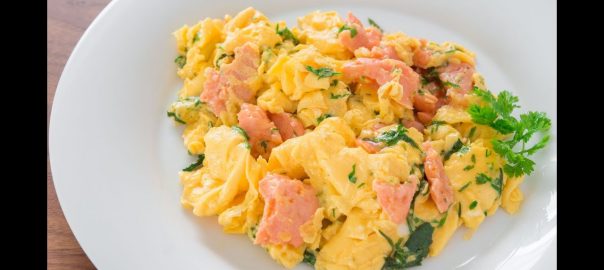
Low Carb Diets & Protein
The Low Carber’s Guide to Protein
Protein is an essential part of any low carb diet. As you cut the carbs from your meals, you need to focus on foods that are protein-rich so you can lose weight and build muscle mass. Protein also contributes to your overall health and can keep you feeling full and satisfied as you work toward your dietary goals.
To expand your understanding of low carb eating, we’ll offer insights into what protein is and how it works with respect to biology and general health. We’ll look at why it matters, the various protein types and explore the difference between plant and animal based.
What is Protein?
Protein is a macronutrient, a category that also includes fats and carbs. The role of macronutrients is to provide energy, in the form of calories, to allow us to grow and remain healthy. Unlike fat and carbs, our bodies don’t store protein so we need to consume a specific amount to function.
Protein is used to build and repair tissues and is responsible for the production of hair, skin, cartilage and nails in addition to body chemicals like enzymes and hormones. It is made of amino acids, which are comprised of carbon, hydrogen, nitrogen and either oxygen or sulfur. When protein is broken down, it provides fuel for muscle mass and contributes to the proper functioning of our metabolism. Furthermore, we rely on protein to aid our immune system and to stay full for longer.
Each gram of protein has four calories and the total amount can make up roughly 15% of a person’s weight. It is recommended that we get 10 to 35% of our calories per day from protein. This range is dependent on one’s sex, age and physical activity.
Protein is generally comprised of meat, poultry, seafood, beans, peas, eggs, some processed soy products, nuts and seeds. It’s a good idea to include a variety of these foods into your diet but you should always focus on leaner cuts and those with the least number of carbs.
Careful of Going Overboard
For decades, high protein and low carb diets have been a popular weight loss and muscle building method.
You might be thinking that a good idea is to just eat protein all day every day. This isn’t the case, though, as you should consume the recommended amount from good sources. If you think eating steak will help you grow stronger, remember that at some point your body will discard excess protein leaving only the unhealthy properties for your system to process.
Different Kinds of Protein
There are eight types of proteins each with their own purpose and function.
Hormonal protein are protein-based chemicals transported through the blood, acting as chemical messengers transmitting signals. An example of this is insulin.
Enzymatic protein speed up metabolic processes in cells aiding in liver function, digestion and blood clotting.
Structural protein is necessary to form the framework of muscles and bones. Examples include collagen, keratin and elastin and are the structural component for skin, hair, nails and teeth.
Defensive protein are antibodies that contribute greatly to our immune system. They form as white blood cells to counteract harmful bacteria and viruses.
Storage protein stores minerals like potassium and iron, which create structural components and restrict the adverse effects of excess protein. Ferritin is an example of a storage protein.
Transport protein, as their name suggests, deliver vital materials to cells. Hemoglobin is one such protein, and it carries oxygen from the lungs to body tissue.
Receptor protein control the substances that enter and exit the cells. Some are responsible to activate enzymes and others must stimulate endocrine glands.
Contractile protein fulfills the important function of regulating the speed and strength of heart and muscle contractions.
Good Sources of Protein
With respect to low carb diets, you should try to get your protein from good sources. While you won’t be short on intriguing options, try to include items from these three groups as much as possible.
- Fish – which is generally lean and offers omega-3 fatty acids.
- Poultry – remove the skin to make it an even healthier meat.
- Nuts – An ounce of almonds provides 6g of protein more than most other tree nuts.
Before committing to a low carb diet, do your homework and give thought to what you want to achieve health-wise. This will steer you toward what proteins you should eat and how to create a proper weekly meal plan.
Check out our recipes or cooking low carb sections in the Low Carb Lifestyle blog for all sorts of meal ideas.
Plant vs. Animal
Proteins can come from eating plant-based foods or from animals. The difference is that animal protein tends to have all the amino acids whereas most plant-based proteins are incomplete. Keep in mind that this isn’t always the case as some grains like quinoa are a complete source of protein.
You want to make sure you are eating the right kinds of protein and pairing them with other low carb ingredients.
Animal meat that is high in protein includes:
- Top or bottom round steak
- Pork chops
- Lean ground beef
- Yellow fin tuna
- Sockeye salmon
- Turkey breast
High-protein dairy includes:
- Greek yogurt
- Cottage cheese
- Eggs
- 2% milk
Vegetarians and vegans should enjoy a variety of protein-rich foods to make sure they get all their amino acids.
In addition to most grains and vegetables, plant protein includes soy, hemp and whey. These are all healthy options so it comes down to personal taste and what you are hoping to achieve.
Whey protein is considered the best with respect to building and healing muscles. If you are active and want to bulk up, then consider including more whey in your diet.
Hemp protein is derived from the hemp plant and does not contain THC, the active ingredient in marijuana. It comes in seed, powder or milk form. if you opt for hemp seeds, you can enjoy them as a hot or cold breakfast cereal or as an ingredient in smoothies.
Soy protein is a by-product of soybeans and is available in the form of milk, tofu, meat substitutes, flour, oil and tempeh.
Foods to Avoid
If you are embarking on a high-protein and low carb diet, you need to steer clear of certain food types and groups:
- Sugar
- Soda, fruit juices, most candy and ice cream
- Trans Fats
- Anything with hydrogenated oils
- Low-fat products
- This is broad but try to avoid certain snacks and cereals that feature reduced fat as they often compensate by adding more sugar.
- Processed foods
- Peruse food packaging and do some research to find products that are unprocessed and feature natural ingredients. You should be extra skeptical of products from big brands.
- Starchy vegetables
- This includes potatoes, sweet potatoes, taro and yams.
Excluding these ingredients from your meals takes some sacrifice. A great tip is to find low carb substitutes—like daikon instead of carrots—and proteins that you love and want to eat every week. This will help ensure that you are looking forward to meals and not dreaming about French fries.
Shop Online for Low Carb Foods!
It’s time to start building a weekly meal plan that features protein-rich ingredients that will perfectly complement your low carb diet.
While you’re here, avoid the local grocery store and shop our store to find a variety of products and brands that will help you lose weight, improve your health and feel more energetic. Fast shipping (free for orders over $100 and under 10kg).






